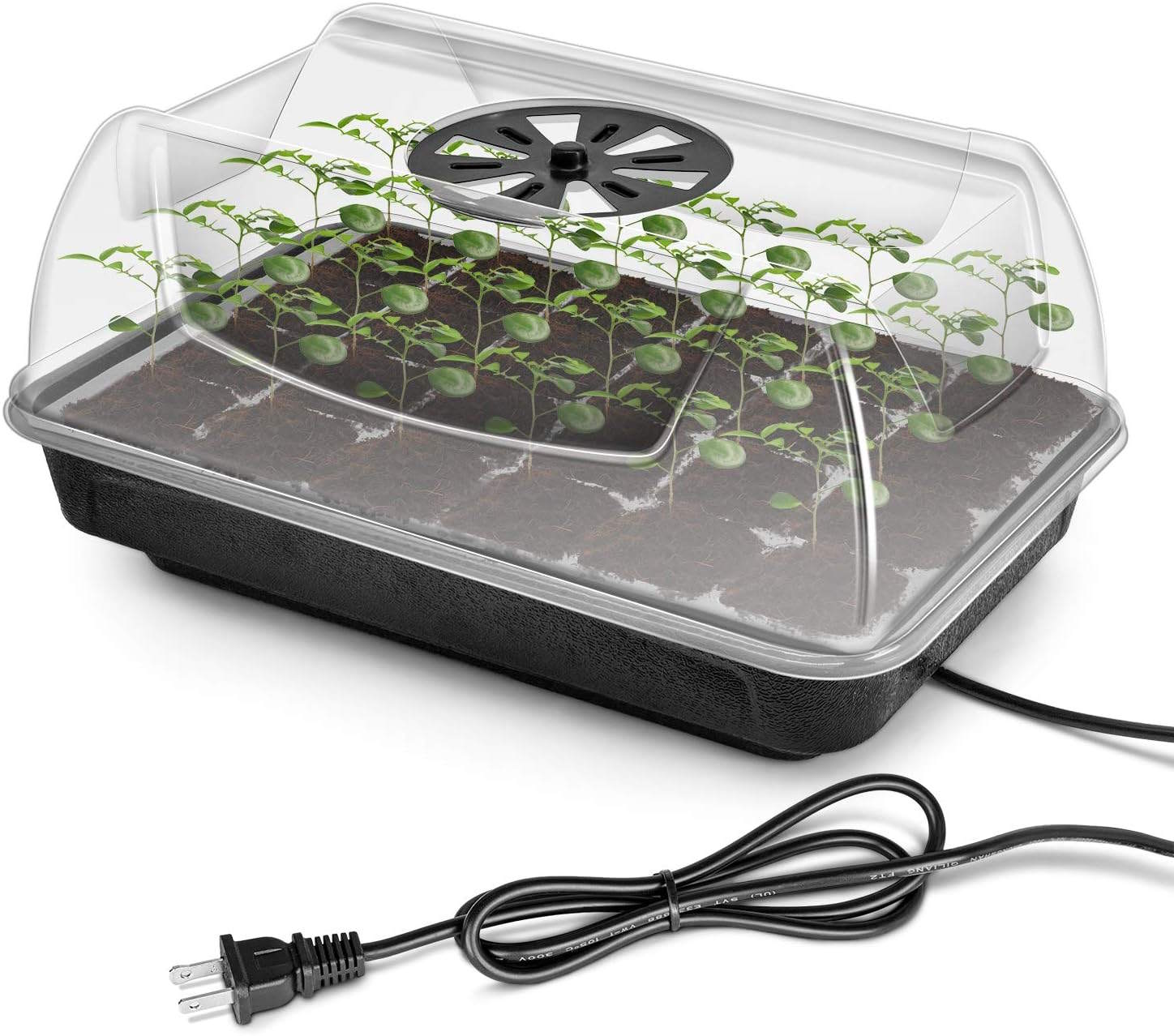7 plants to sow in January to get your gardening year off to a great start
There are many popular flowers and vegetables you can sow early indoors this month
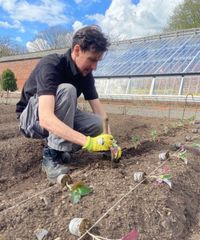
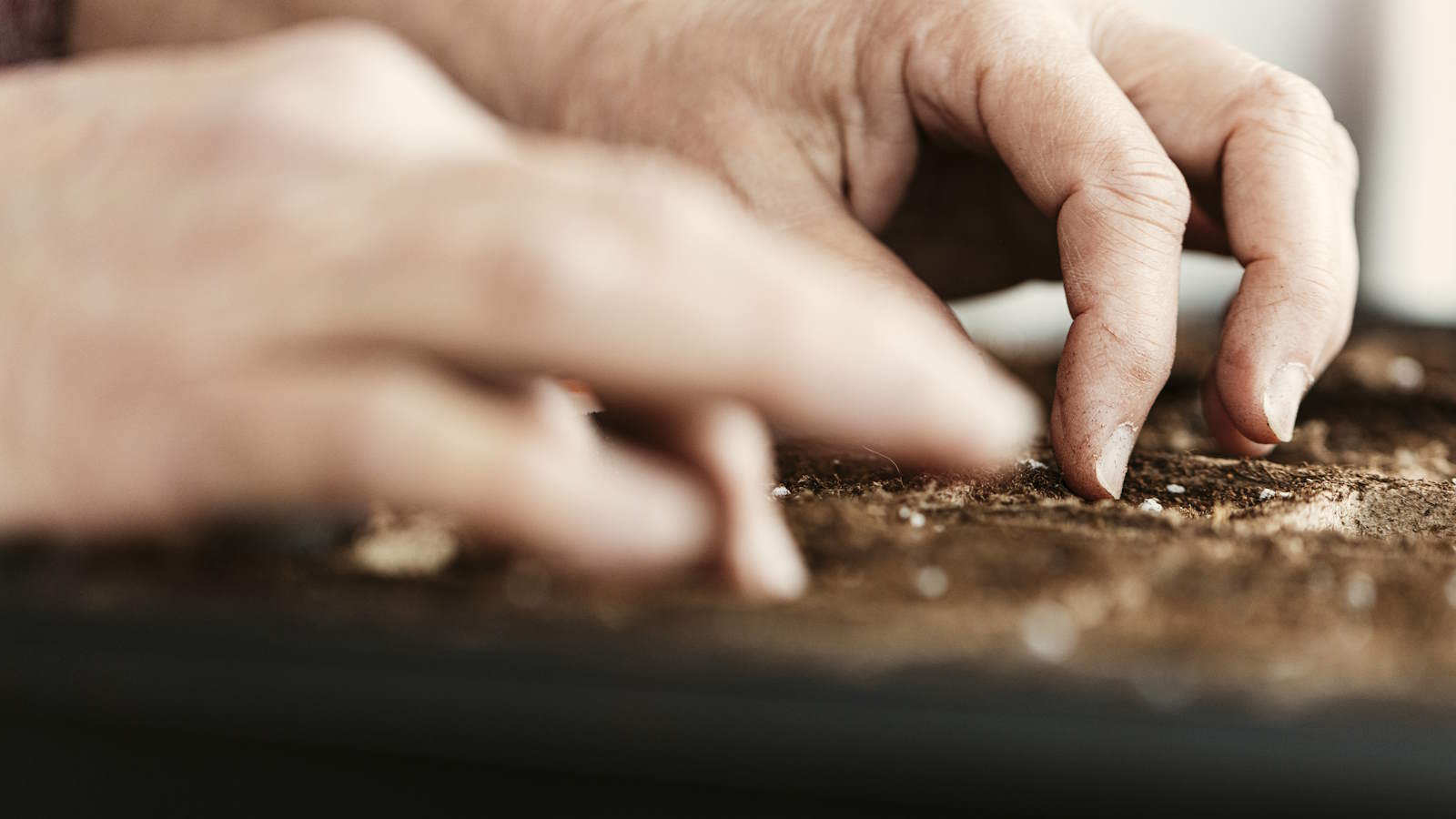
Design expertise in your inbox – from inspiring decorating ideas and beautiful celebrity homes to practical gardening advice and shopping round-ups.
You are now subscribed
Your newsletter sign-up was successful
Want to add more newsletters?

Twice a week
Homes&Gardens
The ultimate interior design resource from the world's leading experts - discover inspiring decorating ideas, color scheming know-how, garden inspiration and shopping expertise.

Once a week
In The Loop from Next In Design
Members of the Next in Design Circle will receive In the Loop, our weekly email filled with trade news, names to know and spotlight moments. Together we’re building a brighter design future.

Twice a week
Cucina
Whether you’re passionate about hosting exquisite dinners, experimenting with culinary trends, or perfecting your kitchen's design with timeless elegance and innovative functionality, this newsletter is here to inspire
The start of a new year is an exciting time for a gardener. It is a period where many will begin to make plans for the year ahead - and the great news is there are plants you can sow in January to really get things off to a good start.
Starting seeds indoors early in January gives you a head-start on plants that have a long growing season, and it can mean longer flowering periods and bumper crops. It also brings with it the satisfaction of getting your hands dirty and kick-starting a new year of gardening. You can also get planting in January, as it is an ideal time to get bare root shrubs and trees into the ground.
In January the levels of heat and light often mean that a heated propagator can be beneficial, though a warm windowsill can be enough to start off many flowers, and plants for a vegetable garden.
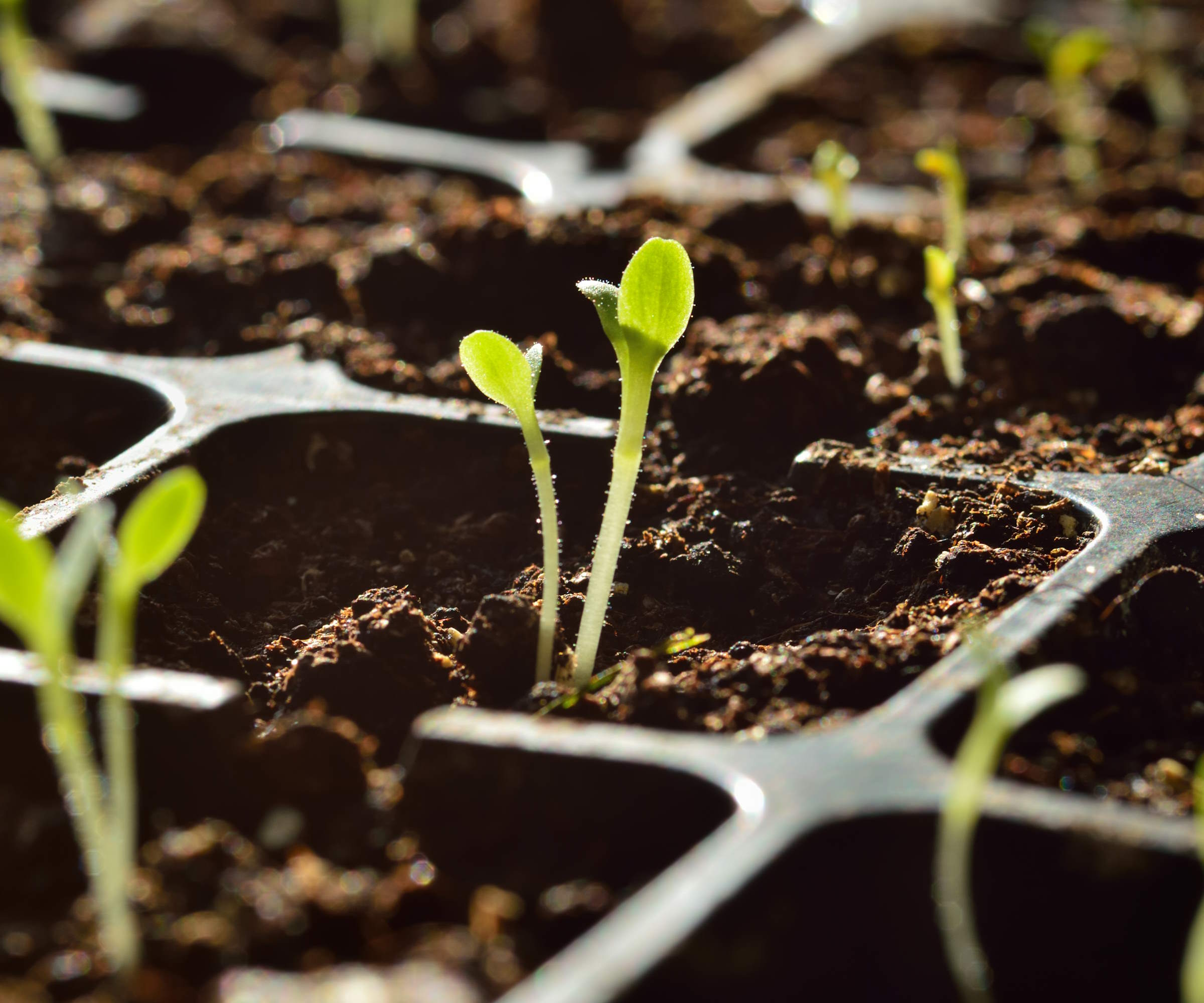
A propagator can provide extra warmth to help seeds germinate
What can I sow in January?
January continues to be a relatively slow time for sowing, but there are still plants that you can sow during the winter months.
A lot of the same plants that can be sown in December can still be done throughout January and February, including sweet peas, eggplants and onions. In addition to those, we take a look at seven plants that may benefit from an early sowing in January.
1. Cauliflower
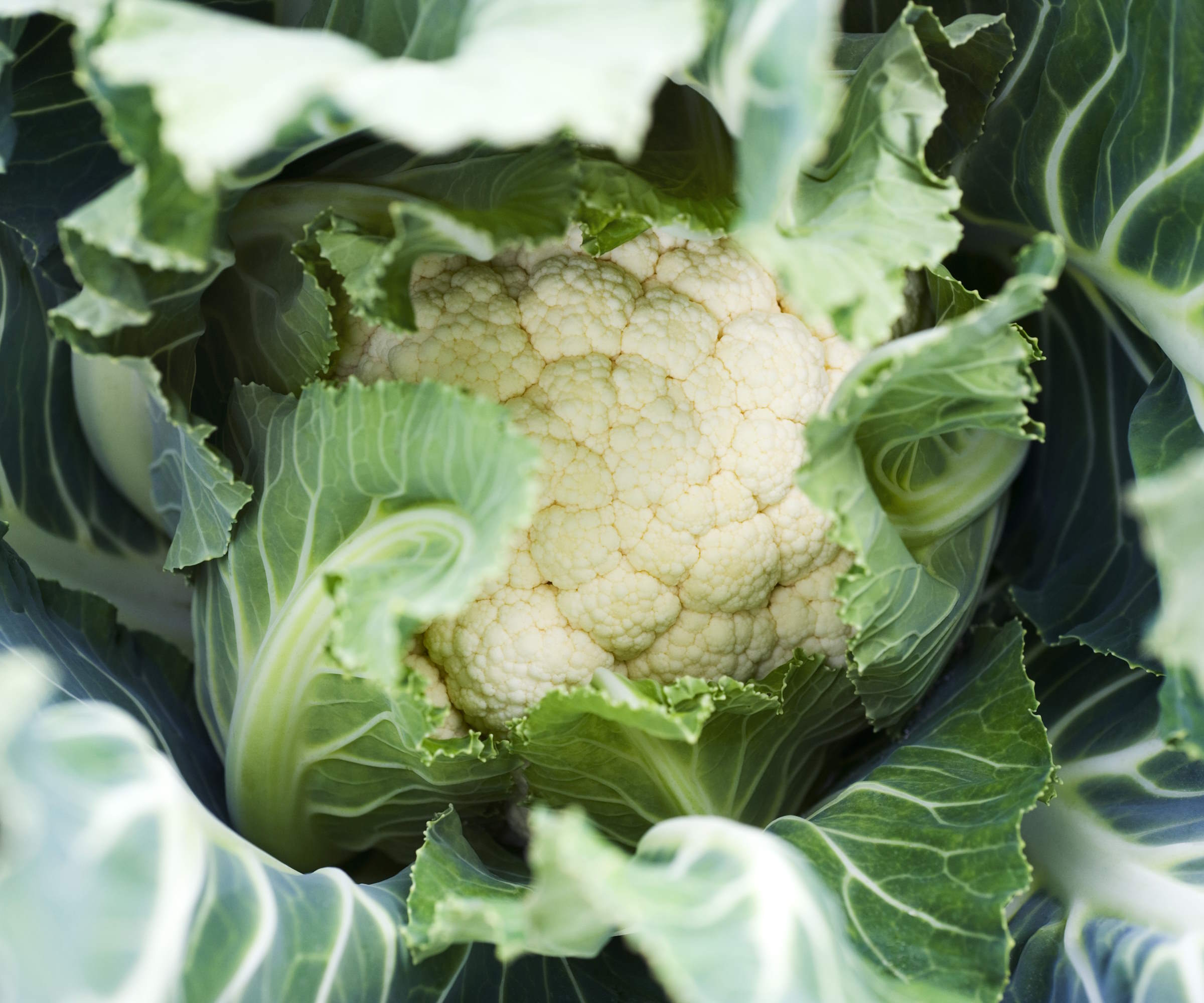
Sow cauliflowers throughout winter and spring for long harvests
Cauliflowers are admittedly not one of the easiest vegetables to grow, but there is a real satisfaction to harvesting large heads of home-grown cauliflower. They have always been one of my favorite crops to grow. I always start some seeds of the variety ‘All Year Round’ in January in a heated greenhouse - it can also be done in a heated propagator. An alternative variety to sow in January is 'Early White Hybrid' cauliflower, with seeds available at Burpee.
Sow seeds in small pots filled with good quality seed compost and give them a temperature of 70-80°F to germinate quickly. The seedlings can then be grown at slightly lower temperatures of 60-65°F ready to transplant the seedlings out into the vegetable garden when they are large enough to handle.
Design expertise in your inbox – from inspiring decorating ideas and beautiful celebrity homes to practical gardening advice and shopping round-ups.
Young cauliflowers need to be protected from frost, through the use of horticultural fleece, available at Amazon, or cloches.
2. Chili Peppers
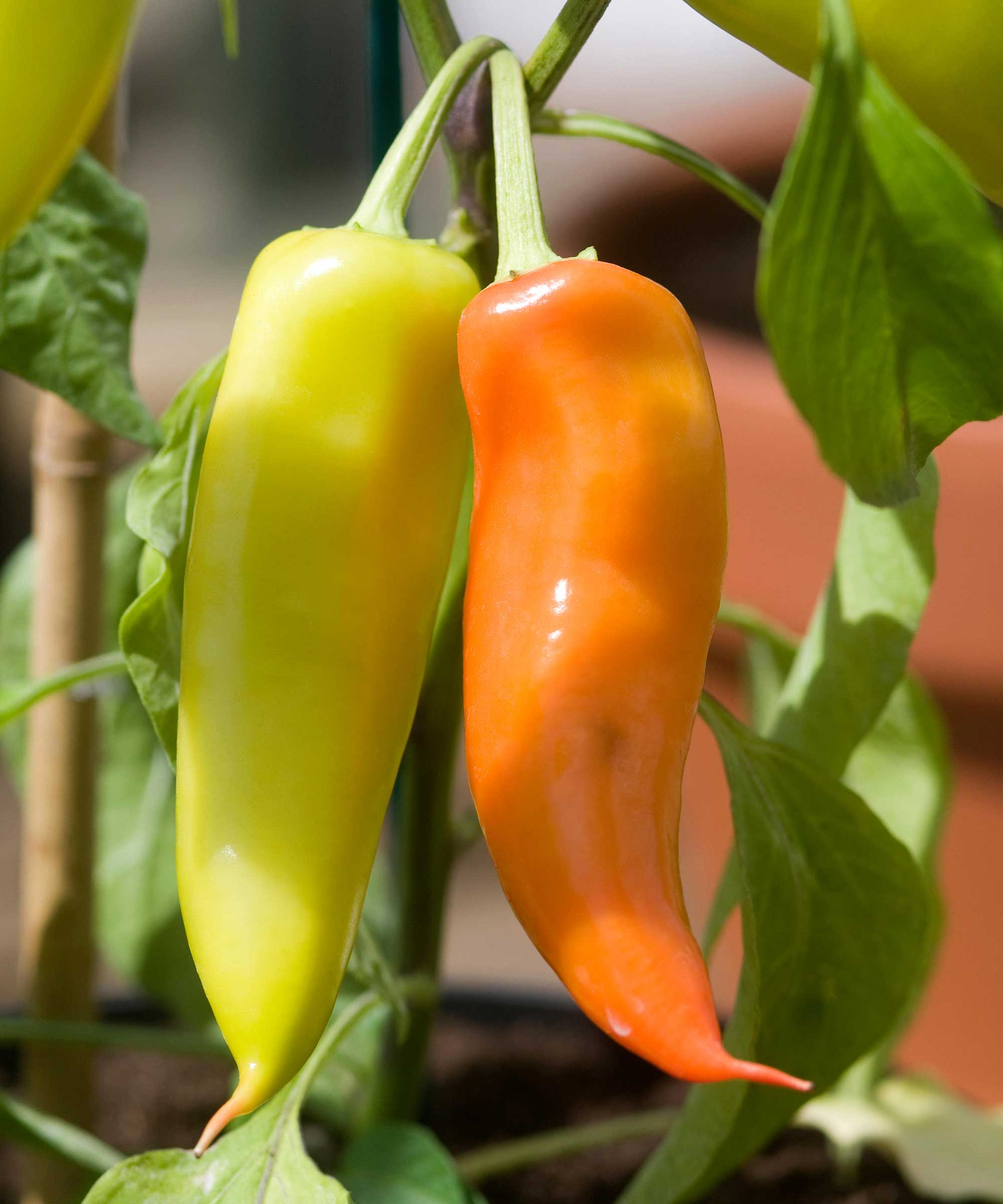
Chili peppers come in a variety of colors, sizes, and levels of heat
Chili peppers are known as heat-loving plants and are often grown undercover in order to provide the warmth required for a bumper crop. The plants also have a long season, as it can take 100 days to go from sowing the seeds to getting the first harvest of ripe peppers.
A lot of chili pepper growers therefore go early with their seed sowing, choosing to start the plants off in January or February in a heated propagator. Early plantings of chilis gives the plants the most time possible to produce and ripen their fruits and give you a long season. A warm and sunny windowsill can be used also, if you do not have a heated propagator to use.
Sow seeds into small pots filled with seed compost and germinate them at a temperature of 65-75°F. The germination should be fairly speedy and plants can be grown in a warm and sunny spot ready to go into their final spot, whether that is in a greenhouse, polytunnel, or outdoors in a warm climate.
3. Cobaea
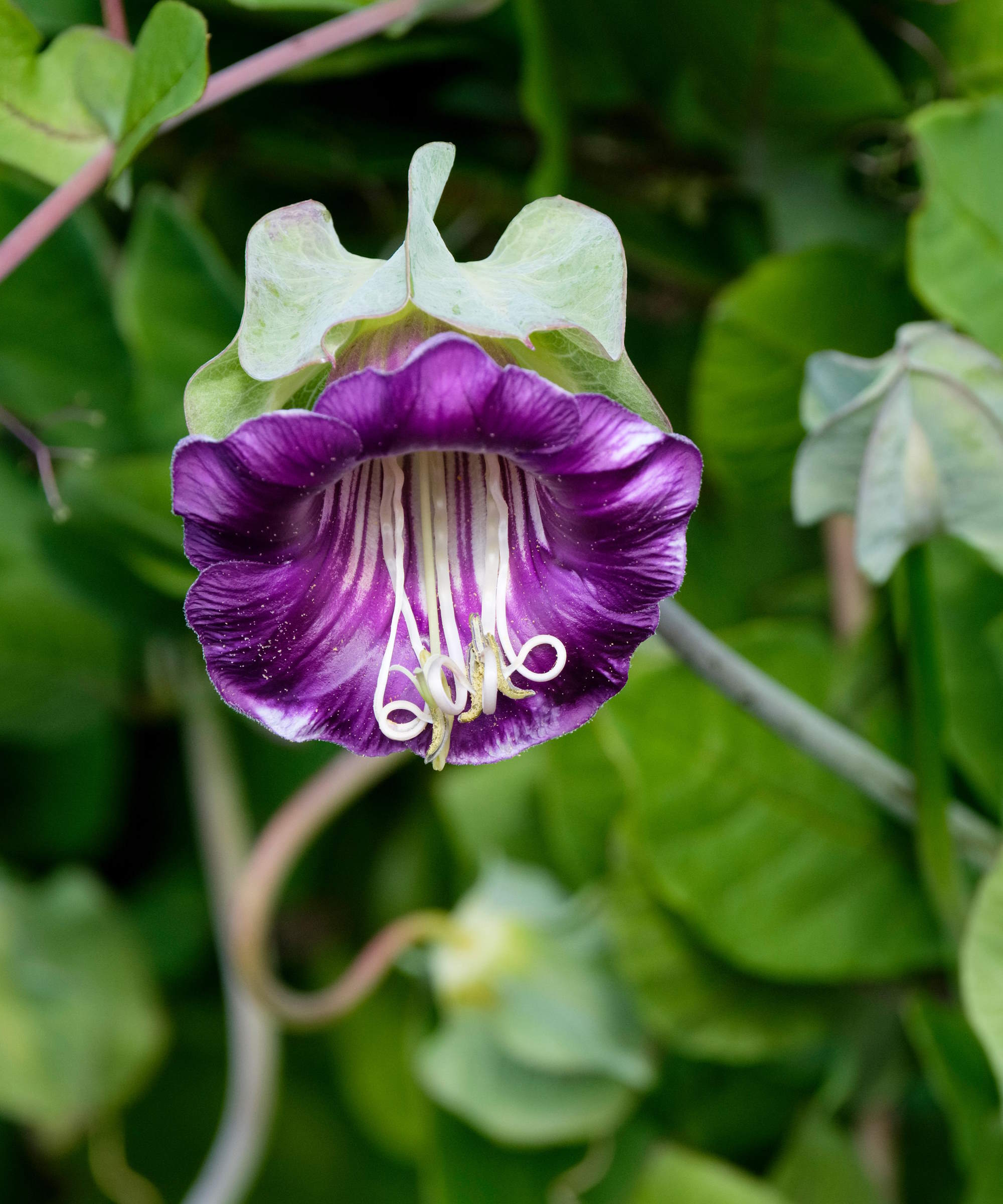
Cobaea flowers from summer through fall
Cobaea is a very fast-growing flowering vine and the tropical plant is often known as cathedral bells or the cup and saucer vine. It can grow 10 feet over the course of a year and can be covered in a plethora of fragrant purple blooms.
Cobaea are not hardy plants and are often grown as annual climbers, though they can overwinter in a greenhouse or conservatory in colder climates.
Seeds are sown from January to March under cover, they do require a little heat to germinate but that can be achieved on a windowsill or in a greenhouse. It is recommended to soak the seeds in warm water for a few hours prior to planting.
Cobaea seeds are large and flat, so always sow them on their edge in small pots filled with compost. It is beneficial to sow Cobaea seeds early as they can take around 20 weeks to go from sowing to flowering. The earlier you sow, the longer the flowering season will be - this can be especially important if these climbing plants are being grown as annuals. You can get Cobaea scandens seeds at Burpee.
4. Dahlia
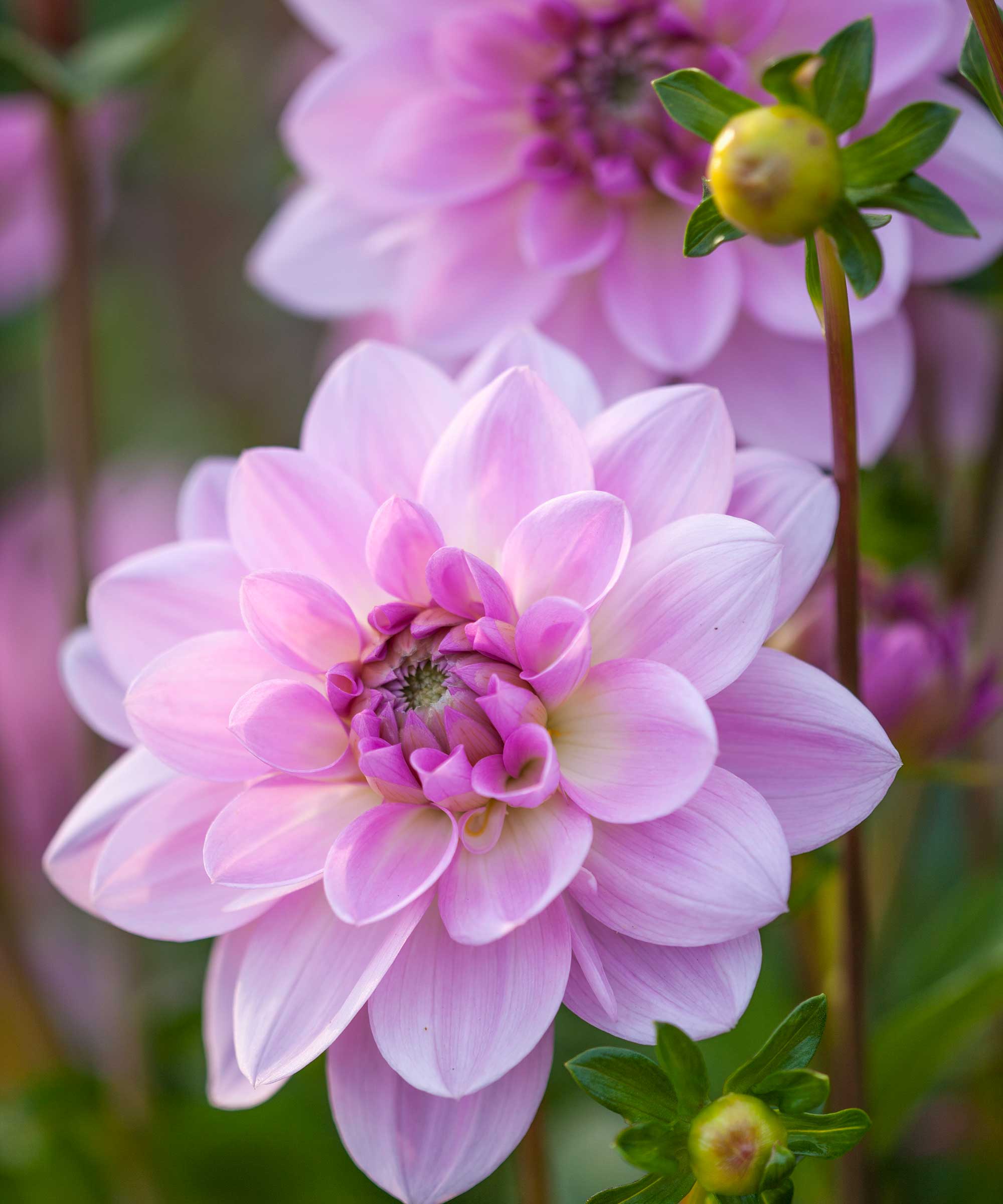
Dahlias can take over 100 days to start flowering when grown from seed
Most people traditionally grow dahlias from tubers, however, it is also possible to grow dahlias from seed that is sown in winter to early spring. Dahlias are really simple to grow from seed and late January is an ideal time to sow them.
Specific varieties of seeds are available to purchase, or you can harvest dahlia seeds yourself to sow - though there is no guarantee the resulting plant will replicate the original. The Figaro Series of dahlia seeds, available at True Leaf Market, can provide double blooms in a mix of colors to brighten up any space.
Sow Dahlia seeds in trays of compost and germinate at temperatures of 60-68°F either on a warm windowsill or in a greenhouse. You can pot the seedlings up into individual pots to grow on, ready to be planted outdoors when the risk of frosts has passed.
5. Dianthus
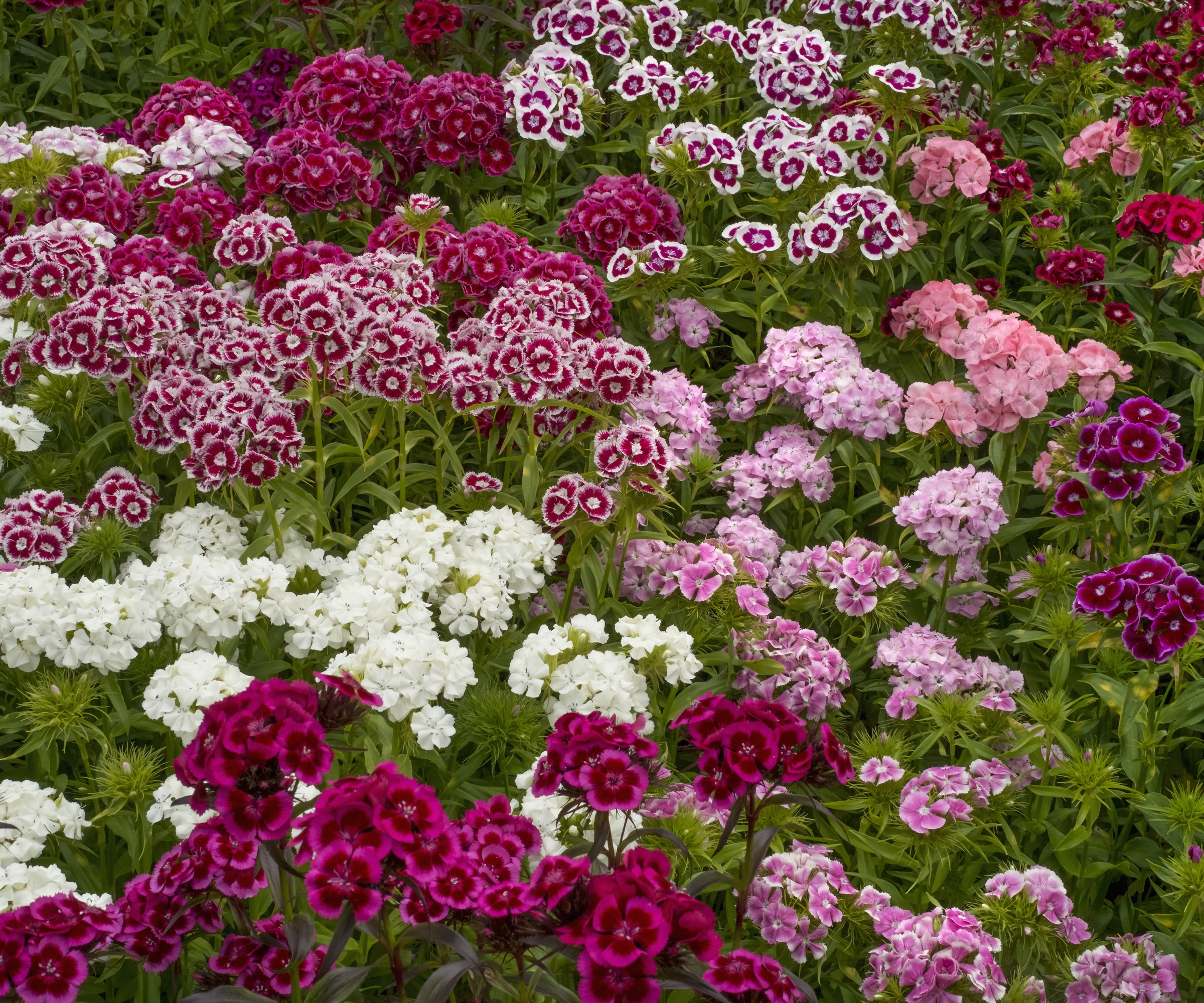
The blooms of Sweet Williams are popular with bees and butterflies
Dianthus barbatus, aka Sweet Williams, are biennials that can be sown indoors early in the year to encourage the plants to flower during that coming summer. The cottage garden favorites are available in a wide range of colors and are hugely popular as part of beds and borders, or even grown as cutting garden flowers.
When sowing in January, Sweet Williams will need the warmth of a heated propagator to get them to germinate. Sow the seeds on the surface and give them only a very light covering of compost or vermiculite, as light is essential for germination.
You can see the range of Dianthus seeds available at True Leaf Market.
6. Delphinium
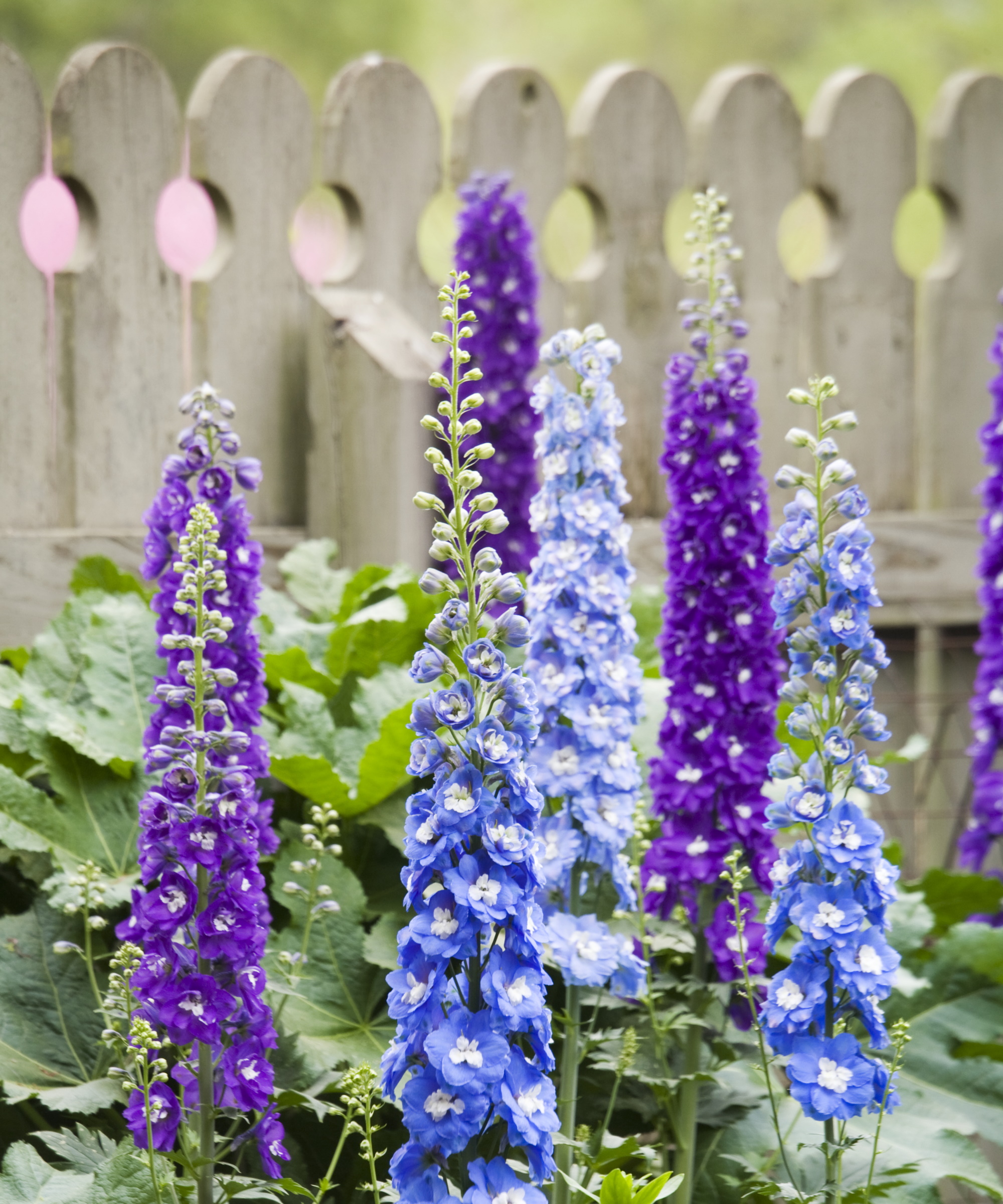
Delphiniums can be encouraged to bloom again by deadheading
Delphiniums are statuesque and dramatic additions to a backyard; their towering spikes of color always making them popular choices for a border. You can grow delphiniums from seed indoors in modules to add to your flower beds, or if you are planning a cottage garden border.
Delphiniums are commonly sown in situ in fall or spring, but you can start them early indoors around 8-10 weeks before your first frost. A period of cold stratification is required for the seeds and this can be achieved by putting the seeds in a refrigerator for 7-10 days before sowing.
To start delphinium in a greenhouse, sow the cold-treated seeds into trays or modules and cover with a fine layer of compost. They need to be kept moist and may take a few weeks to germinate. The seedlings can be transplanted outside once the frosts are over, after a period of hardening off.
7. Leeks
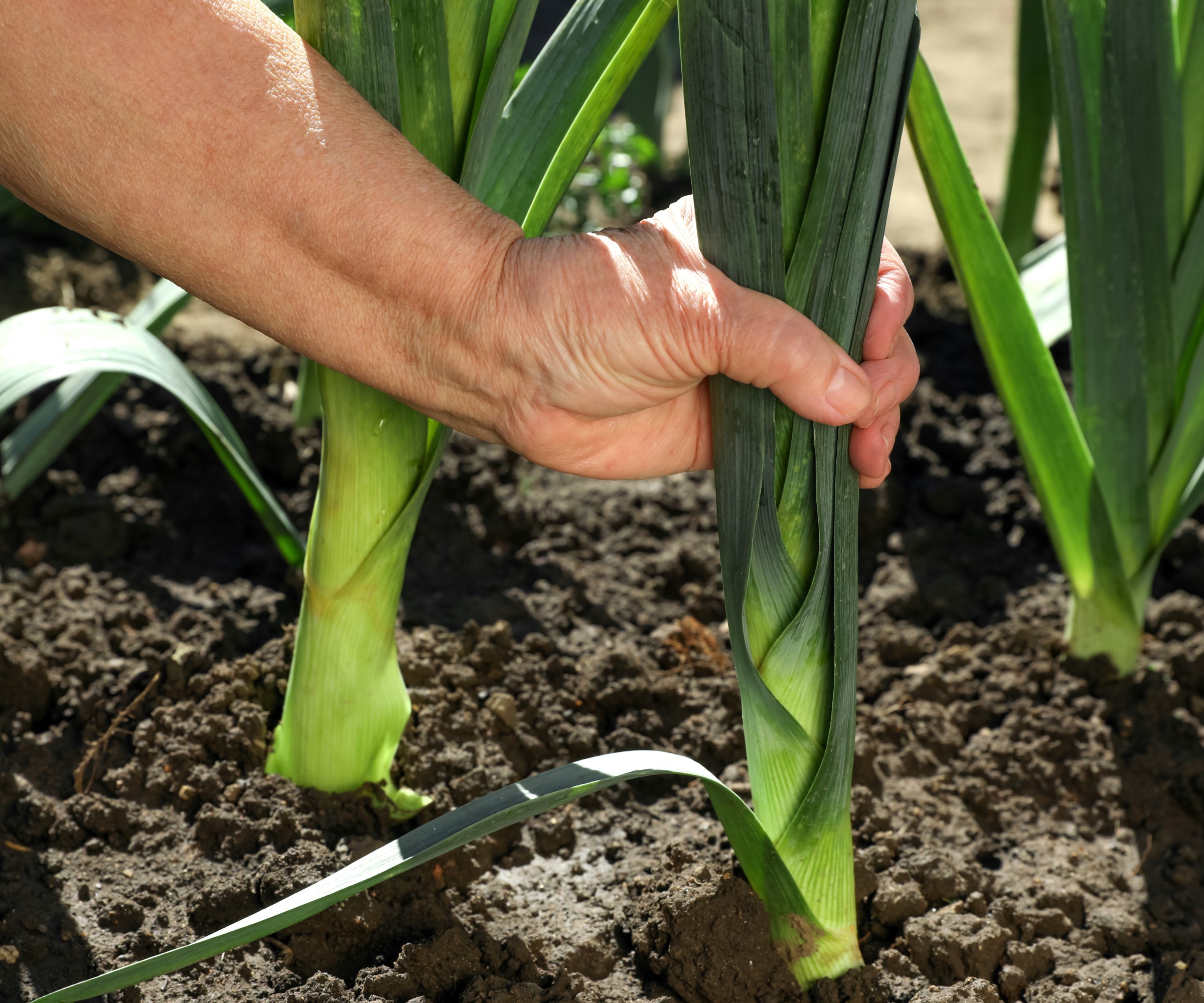
Leeks come in early, mid, and late-season varieties
Leeks have a long growing season and it's possible to start them as early as January indoors. This practice is more common among growers who want to grow big leeks, or ones for the show bench.
An early sowing indoors gives them lots of time to grow and bulk up, ready for the first leeks to be harvested come late summer or early fall. Sow the seeds thinly in pots or modules filled with seed compost and cover with a thin layer of more compost.
The seeds want temperatures of at least 45°F to germinate and a spot with good light. Seedlings should appear within a few weeks and the plants can be grown in an unheated greenhouse or on a bright windowsill, ready to be planted out into rich soil come spring.
You can see the range of leek seeds available at Burpee.
FAQs
Is January too early to plant flowers?
January is too early to plant flowers outdoors in the garden, but there is a good selection of flower seeds that can be sown this month indoors. This includes the likes of sweet peas, petunias, geraniums, calendula, begonias, as well as the dahlias, dianthus, and delphinium.
Can I sow carrots in January?
As part of planning a greenhouse for winter, you can sow carrots throughout January indoors for an early spring crop - as long as you can provide temperatures of 55-65°F that carrots want for germination.
This includes growing carrots in containers in a warm backyard greenhouse. January is too early to sow carrots outside, with February usually the starting point for growers to sow early varieties of carrots under cloches in the garden.
Can I plant any bulbs in January?
January is often thought of as too late to plant spring bulbs, but there is still the opportunity to plant tulip bulbs if you didn’t get round to it in fall.
They may flower a bit later than those planted in fall, but there is still time to get a great display of color from planting these spring bulbs early in the new year.
One other important winter gardening job you can do in January is mulching. It can smother weeds, benefit the soil structure, improve the water-holding capacity, as well as provide nutrients as the mulch decomposes.
Spread a layer at least two inches thick of compost, well-rotted manure, or leaf mold when the ground is not frozen and your plants will be highly thankful for it.

Drew has worked as a writer since 2008 and was also a professional gardener for many years. As a trained horticulturist, he worked in prestigious historic gardens, including Hanbury Hall and the world-famous Hidcote Manor Garden. He also spent time as a specialist kitchen gardener at Soho Farmhouse and Netherby Hall, where he grew vegetables, fruit, herbs, and cut flowers for restaurants. Drew has written for numerous print and online publications and is an allotment holder and garden blogger. He is shortlisted for the Digital Gardening Writer of the Year at the 2025 Garden Media Guild Awards.
